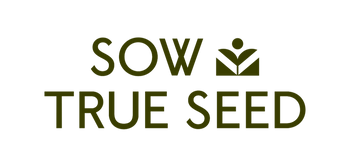George Washington Carver contributed greatly to modern agriculture including empowering Black farmers to grow small and organically to benefit themselves and the land. Perhaps best known for his recognition of conservation on the farm and his resourceful approach to elevating peanuts as an economic alternative to cotton, historians point out that Carver was much more than the "peanut man", as he became known.

"One of America's great scientists." U.S. World War II poster circa 1943
Alongside all of Carver's greatest achievements he encountered many hardships. Orphaned from his enslaved parents as a toddler, Carver was raised by Susan & Moses Carter who encouraged his intellectual pursuits. He was not allowed to attend school in his hometown because he was Black, so had to relocate and attended many schools. He was rejected by Highland College in Kansas for his race, so he homesteaded a 17 acre piece of land on his own, eventually going to Iowa State to study botany. A talented painter of plants, George explored and fell in love with nature instead of working the fields because he was a "sickly" child.

George Washington Carver (front row, center) poses with fellow faculty of Tuskegee Institute in this c. 1902 photograph taken by Frances Benjamin Johnston.
As the first Black man to earn a graduate degree in agriculture in the U.S. (and the first black student at Iowa State), Carver was offered many teaching positions upon graduation, but he chose to join Booker T. Washington in opening the Agricultural School at Tuskagee University in Alabama. On his way from Iowa to his new post in Alabama, Carver recalled, "Everything looked hungry: the land, the cotton, the cattle, and the people.” He understood that cotton did nothing to replenish the soil. He went on to educate Black sharecroppers to steward their land with diversified crops, composting and other resourceful and sustainable methods, essentially empowering their future with better soil than cotton allowed.
In his acceptance letter to Washington, Carver stated, "It has always been the one great ideal of my life to be of the greatest good to the greatest number of ‘my people’ possible and to this end I have been preparing myself these many years; feeling as I do that this line of education is the key to unlock the golden door of freedom to our people.”
| |
Article Written by: Angie Lavezzo |
|
About the Author: Angie Lavezzo is the former general manager of Sow True Seed. Beyond her professional role at Sow True, Angie's passion for gardening extends into personal hands-on experience, fostering plants and reaping bountiful harvests. |
Sources and further reading:
National Peanuts Board: https://www.nationalpeanutboard.org/news/george-washington-carver.htm
Smithsonian Magazine: https://www.smithsonianmag.com/history/search-george-washington-carvers-true-legacy-180971538/
Wikipedia: https://en.wikipedia.org/wiki/George_Washington_Carver


